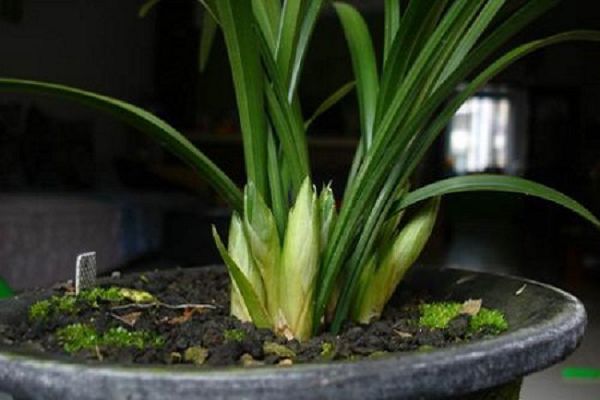Can pure coconut bran grow orchids?

Depending on the specification of coconut bran and the experience of growing orchids, it is not absolutely impossible, nor can it be said to be completely possible. Coconut bran has several different specifications, fine coconut bran water retention is too good, planting orchids may lead to rotting roots. The coarse coconut bran particles are too large and can not fit well with the orchid root system, which may cause the orchid root to hang in the air and produce empty root, thus affecting the growth of flowers and leaves. If you want to grow orchids with pure coconut bran, you can use 16mm specifications, which can not only avoid rotting roots, but also avoid root suspension.
If the coconut bran on hand is too thin or too thick, we can make up for its shortcomings by adding other plant materials and become an excellent plant material suitable for growing orchids as much as possible. For ultra-fine coconut bran, water permeability can be increased by adding particles such as cinder, red brick, phytolith and so on. For coconut bran which is too thick, the fit degree with Langen can be improved by adding plant materials such as garden soil, peat soil, rotten leaf soil and so on. It is generally not recommended to grow orchids with pure coconut bran. It is best to use a mixture of soft and hard plants, which can not only ensure water permeability and air permeability, but also ensure water retention. Let's talk about the disadvantages and advantages of planting orchids with pure coconut bran.
Advantages of planting orchids with pure coconut bran
Coconut bran has good water permeability and water retention, so it is widely used in flower potted plants. Planting flowers with plant materials containing coconut bran, the root system is not easy to rot, nor is it easy to produce the phenomenon of impermeable watering. In particular, it is used to plant some flowers that like water but are afraid of waterlogging, such as azaleas, gardenias, etc., the effect is better, but also easier to raise the state. High-quality pure coconut bran can also replace water moss to raise flowers with aerial roots, such as Phalaenopsis, Dendrobium and so on. The root system of orchid is fleshy, like loose and breathable plants, but afraid of waterlogging, these two points of pure coconut bran can be satisfied. So in theory, pure coconut bran can grow orchids, as long as the specifications are appropriate.
Disadvantages of planting orchids with pure coconut bran
1. There are no nutrients
As mentioned earlier, if you want to grow orchids with pure coconut bran, you should choose the right specification. Coconut bran is too small or too large, which is not conducive to the growth of orchids. In addition, coconut bran itself does not have any nutrients, and can only play the role of fixed root system and water conservation and ventilation. Orchids planted with it should pay attention to fertilization in the later maintenance, otherwise it is easy to lack of fertilizer and poor growth. But the general orchid growth needs not only nitrogen, phosphorus and potassium, but also some trace elements, otherwise affect flowering or growth. Orchids planted with mixed plant materials are rich in trace elements and rarely lack of trace elements. Orchids planted with pure coconut bran, even if nitrogen, phosphorus and potassium are guaranteed, there will still be a lack of trace elements. Therefore, when applying fertilizer, we should not only apply nitrogen, phosphorus and potassium fertilizer, but also supplement trace elements when necessary, or use some mature organic fertilizer for orchids.
2. Freezing injury is easy to occur at low temperature.
Planting orchids with pure coconut bran is prone to freezing injury when the temperature is low. The reason is that the water retention of coconut bran is very good, in the first few days after watering, the water content is very high, if you encounter low temperature weather, the temperature of the micro-environment in the basin is even lower, it is prone to frost damage. Maybe some flower friends say: you can avoid watering orchids at low temperatures. It is true that orchids should be watered less in low temperature weather, but the plants have to be watered when they are too dry, so they can't go on forever. How to avoid this problem? I think the most important thing is to choose a reasonable watering time, watering as much as possible when the temperature is relatively stable, not too low, and the weather is fine, after pouring more sun, so that the moisture in the plant material can evaporate quickly. freezing damage is not easy to occur when the temperature is low at night.
Common usage of coconut bran
In the process of orchid conservation, the more common use of coconut bran is to mix with other plant materials, which can not only give full play to its characteristics of water retention and air permeability, but also more conducive to the growth of orchids. Especially for novice orchids, pure coconut bran is not recommended. Of course, there are also flower friends who grow orchids with pure coconut bran, there is no problem at all, they can still grow big white roots, but it requires a certain basis for orchid cultivation, knowing what kind of coconut bran to use and how to control watering and fertilization. If you want to make orchid old Reed hair new seedlings, pure coconut bran planting is excellent.
Conclusion: if you want to grow orchids with pure coconut bran, it is best to choose specifications with slightly larger particles rather than too fine coconut bran. Planting orchids with coconut bran has both advantages and disadvantages, the advantages are ventilation and good water retention, the disadvantage is that there is no nutrition, it is necessary to pay attention to fertilization after planting. Another disadvantage of planting orchids with pure coconut bran is that it is easy to produce frostbite when the temperature is relatively low. For novice orchids, it is recommended not to use pure coconut bran for planting, the simplest one can be mixed with a little garden soil, and a mixture of the two is better than using coconut bran alone.
- Prev

How to water the newly planted orchids? can they be watered every day?
How to water the newly planted orchids? can they be watered every day?
- Next

How do you classify orchids? Are all the flowers with the word "orchid" in their name orchids?
How do you classify orchids? Are all the flowers with the word "orchid" in their name orchids?
Related
- Is the orchid suitable for indoor use? Is it good for the body?
- How to prevent the empty root of orchids?
- What to do after the crab claw orchid is withered?
- Why are the leaves of orchids always yellow? Fertilizing and watering.
- Can the root of the gentleman orchid be saved if it is rotten?
- Diagnosis and treatment of cotton-blowing beetle insects in Cymbidium
- There is a way for a gentleman's orchid to rot.
- What is the most suitable temperature and humidity for the orchid?
- How to raise a gentleman's orchid? Cultivation techniques of Cymbidium
- How to prepare the nutritive soil for the cultivation of Cymbidium

